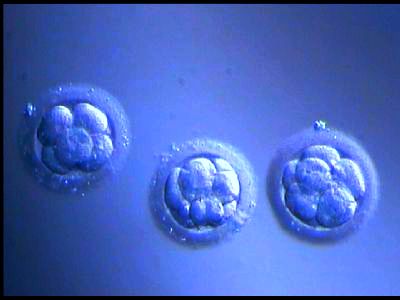
Scientists have developed a safe, accurate and low-cost method to select genetically normal embryos for the IVF procedure, increasing a couple’s chance of producing a healthy child.
Through whole-genome sequencing of individual egg cells, the new method detects chromosomal abnormalities and DNA sequence variations associated with genetic disorders.
“Theoretically, if this works perfectly, we will be able to double the success rate of test-tube baby technology from 30 per cent to 60 per cent or even more,” said study author Dr Jie Qiao, Chief Physician and head of the Department of Obstetrics and Gynecology at Peking University Third Hospital in Beijing.
The in vitro fertilisation (IVF) procedure involves joining a woman’s egg and a man’s sperm in a laboratory dish and then transferring embryos into the woman’s womb.
Various procedures are currently available to detect genetic defects in embryos prior to implantation, but these approaches are often invasive, requiring the removal of cells from the growing embryo, and do not simultaneously detect both chromosomal abnormalities and DNA sequence variations associated with genetic disorders.
Researchers have recently developed whole-genome sequencing methods to simultaneously detect both types of defects in single human sperm cells, but until now, an analogous approach had not been applied to egg cells, even though chromosomal abnormalities are much more common in egg cells than in sperm cells.
In the new study, Dr Sunney Xie of Peking and Harvard universities teamed up with Qiao and Dr Fuchou Tang of Peking University to develop a method for sequencing the entire genomes of polar bodies – cells that arise as a byproduct of egg cell division and often die later on.
Because polar bodies are dispensable for human embryonic development, they can be safely removed without harming the embryo.
“We are now starting a clinical trial based on this approach. If the clinical trial works, this technique could enormously increase the success rate of IVF, especially for older women or women who have had recurrent miscarriages,” Xie said.
The study was published in the journal Cell.
Source: Times of India

